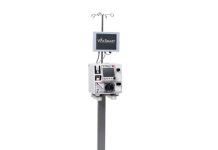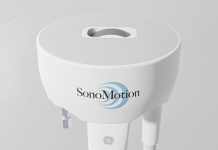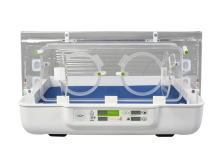Mark Edwards, chief executive officer & co-founder at ViewMind, explains how the company is using AI in the diagnosis of neurodegenerative disorders.
The world of healthcare is currently being transformed by AI, allowing innovative healthcare providers to make decisions which are more accurate, rapid, and data-driven than in previous generations. The uses of AI are widespread – from reducing the administrative burden on healthcare staff to improving fertility monitoring and treatment.
Another area of medicine and diagnostics where AI is having a revolutionary effect is in cognitive health – one of the biggest health and social issues we face. The global cost of treating and caring for Alzheimer’s patients alone is over $1 trillion annually, emphasising the need for innovative technology to help deal with this significant issue. According to the W.H.O. one in six of the world’s population have a neurocognitive disorder. Around 60% of nervous system disorders go undiagnosed, rising to 90% in developing countries. Mis-diagnosis is another challenge affecting about 20% of multiple sclerosis, 20% of Alzheimer’s and 30% of Parkinson’s Disease patients according to the National Institute of Health.
At ViewMind we understand this challenge, as we utilise AI in digital biomarkers to do a presumptive diagnosis of patients suffering from cognitive health issues, using data collected by a VR-style headset from eye movement patterns. The data is then analysed by AI driven algorithms, which can then uncover hidden cognitive health issues.
The societal need for early diagnosis of cognitive health issues is on the rise, with recent studies highlighting the importance of helping patients before their symptoms are evident. Specifically, one ground-breaking recent study published in The Lancet, found that the number of adults suffering from dementia worldwide is set to almost triple by 2050 to a staggering 153 million patients. This demonstrates how dramatic this issue is going forward, as early diagnosis is needed to help healthcare providers target their efforts to susceptible patients.
Until they are properly diagnosed, many of these patients will not receive the care and attention they need. If a patient only starts to receive care after they’ve presented symptoms, healthcare providers are dealing with a disease which may have been degrading the patient’s cognitive health for decades. Effective treatment needs to come before symptoms are obvious, allowing for the patient to receive the right care, medication, and lifestyle advice. This makes early diagnosis – driven by innovative technology – even more crucial.
In general medicine, positive strides forward have been made when early diagnosis has been introduced and is broadly available, which has fostered innovation and treatments targeting an earlier stage of intervention before symptoms present. Examples include a colonoscopy, cervical screening test and diabetes screening.
If traditional cognitive diagnosis techniques were truly effective and accessible, this issue would not be as severe. Unfortunately, this is not the case since traditional methods are often highly invasive and are associated with a certain level of risk. This is the case for lumbar punctures CSF, which involves taking a sample of cerebrospinal fluid from the lower back or doing a PET scan to detect amyloid beta deposits or Tau tangles. On top of the risks involved with procedures like these, the tests are costly, often creating a sizable bill each time a patient is examined. This has implications across the spectrum of healthcare providers and these tests are not accessible speculatively.
Relying only on traditional tests clearly isn’t the best course of action. Diagnosis needs to be both accessible, sensitive, and affordable to help us prepare for the oncoming dementia epidemic, for instance. At ViewMind, our aim is that in the near future we are in a position to test millions of people a year in clinical and non-clinical settings, such as GPs or opticians, as part of standard health checks as well as neurology departments in hospitals.
Healthcare professionals can use ViewMind’s technology to administer a 15 minute test, using a VR-type headset – ViewMind recently signed a partnership deal with HP, with ViewMind’s tests being administered exclusively by HP’s Reverb G2 Omnicept VR Headset. About 100,000 data points are collected by measuring the patient’s eye movements during a set of diagnostic exercises. The data is then analysed using AI to correlate a person’s data with various neurodegenerative diseases, such as AD and multiple sclerosis, providing a precision diagnosis and depending on the test, before clinical symptoms present.
The validity of ViewMind’s technology has been proved by several studies, including a four-year longitudinal study conducted in people with Mild Cognitive Impairment (MCI). This study predicted with 97% accuracy which patients were going to convert to Alzheimer’s syndrome, highlighting how impactful the technology can be. ViewMind’s technology is accurate enough that it can also help pharmaceutical companies test the impact of certain drug treatments and dosage levels on a patient’s cognition and motor functions, which is an area of huge potential growth.
Previously studies like this were incredibly difficult to conduct, with findings taking months or even years to become evident. ViewMind’s technology can speed up the entire review process. The technology can allow innovative drugs to be tested in a controlled environment, generating individualised datasets to study the effect of drugs on certain patients and paving the way for personalise treatment.
Ultimately, early diagnosis and uncovering new medical treatments will be the difference in the fight against the growth in cognitive health disorders. If the technology to diagnose patients before they exhibit symptoms is widely available, more people will be able to receive treatment in the 10-20 year period before symptoms become irreversible. This issue is made even more important since many of the new drug treatments currently being developed are most effective fighting the diseases in the early stages. Previous research has also found that delaying the onset of Alzheimer’s by five years through medical intervention can decrease the prevalence of clinical symptoms by 50% over a 50 year period.
This all further emphasises the benefits of early diagnosis. Not only can you delay and mitigate the impact of cognitive diseases, but early diagnosis also puts the patient in control. It can empower them to positively impact their own situation through lifestyle changes and treatment. We may consider aging to be a normal part of life, but it doesn’t necessarily mean people are guaranteed to develop Alzheimer’s disease. If patients likely to develop Alzheimer’s disease change their lifestyle at an early stage, it can provide a world of good – with the diagnostic technology at our fingertips, we don’t have to be fatalistic.
Instead, we should be ambitious in fight against cognitive health conditions. The size of the problem alone requires that we adopt this attitude, as we can no longer rely of the old ways of thinking to combat this issue. Adopting new technology goes hand-in-hand with this approach, as often it is technological innovation that allows us to meet the bold goals we set. Using AI for Alzheimer’s diagnosis and dementia patients is clearly an important part of this story, but it is still only one part. Greater technological innovation can also come in at the treatment stage, for instance. Once we understand the power and efficiency AI can bring, the possibilities are truly unimaginable with generations to come pushing the boundaries of what we thought possible for patient care.






